Six Tips for Planning Your Own Art Exhibition
For any emerging artist, planning your own art exhibition can be a challenge. Not only is it an opportunity to showcase your art; it’s also a great chance to make a prominent impression on your audience. For many, an exhibition is the golden ticket to a number of possibilities, depending on what your objective is.
Before pulling off your ideal show, it’s important to know what exactly you’re hoping to get out of this experience. Is it to establish yourself further as an artist? Is it as a means of making that all-important sale? Is it something you want to cross off your bucket list? The amount of money and time you need to invest in the event depends on the hopes you have for it. Whatever your personal goal may be, here are six tips for planning an exhibition.
Tips #1: Pick the right venue for your art exhibition
The space you use to exhibit your work is essential to meeting your expectations, and can end up being the most budget-draining factor if you’re not careful. Key factors that need to be taken into account are the expected attendance, foot traffic, the reputation of the space and if it suits the style and purpose of your exhibition. Some venues can add sneaky surcharges to installing work, which can dramatically crank up the cost, so be sure to consider how you’ll mount your artwork when choosing the perfect place.
An effective way to evaluate venues is to first scope out venues online then do a walk-through of your options before you choose. Think in terms of the way exhibition-goers are going to move around your event space. Try allowing each piece of art to have its own floor space for viewing and keeping aisles clear to remove the chance of overcrowding. Otherwise, being creative with your venue can save you a small fortune and compliment your exhibition’s purpose.
Recently, Bluethumb brought art to shoppers with a pop-up exhibition with a message in the IGA next to the Melbourne Art Fair. With the aim of raising awareness about Bluethumb and our mission to empower artists, rather than sales, the exhibition became a “must-see” for Melbourne Art Week, and the event has twice since been featured in Broadsheet.
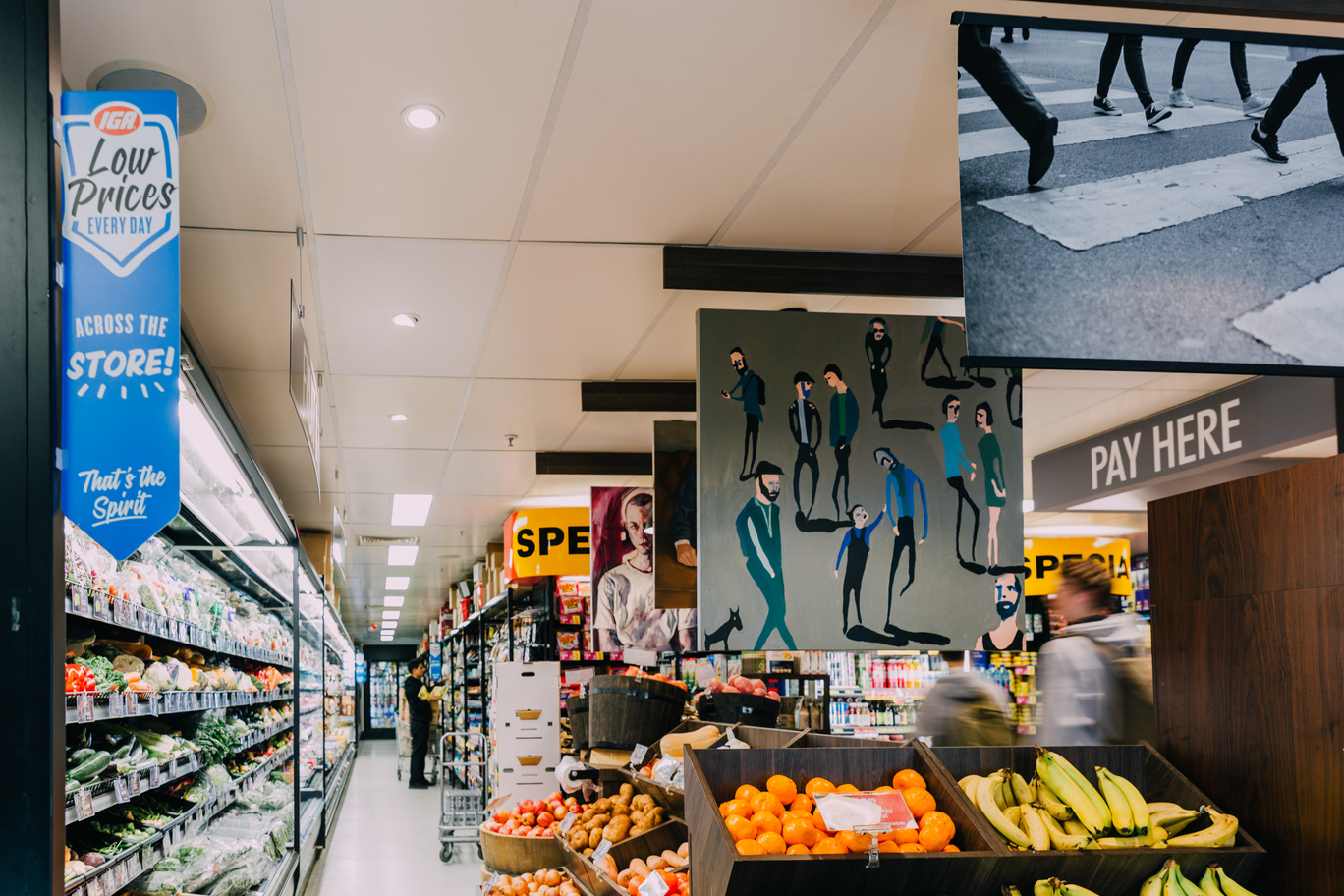
Our pop-up exhibition at the IGA proved to be a big hit with shoppers and art fans alike – space is key when planning your own art exhibition.
Tip #2: Choose your best work
This may seem obvious, but the work you choose to showcase will make or break the success of your event. Your best work is what boosts your self-confidence, gives exhibition-goers a reason to show up to the event – and potentially brings them back. This is your chance to shine, and promising your finest art creates an image of you. Whether you’re a new artist planning your first exhibition and trying to establish your credibility, or you’re a seasoned veteran debuting a new collection that completely strays away from what you normally do, putting your best effort in front of the eyes of the audience will prove your worth.
Tip #3: What’s the theme?
Make this a memorable experience for viewers and create a theme for your art exhibition. Building a relationship between the pieces on display offers a collective experience that will be easier to understand. In contrast, having a bunch of random, unrelated works without a clear theme won’t demand the commendation your work deserves. Establishing a theme is another opportunity to show your artistic self and will give your audience a bit of a background to the pieces, especially if you’re showcasing abstract or less figurative pieces. For a little inspiration with this, the team at Bluethumb handpick a weekly curation in correspondence with a chosen theme, which allows viewers to explore the relationship between pieces and discover new artists.
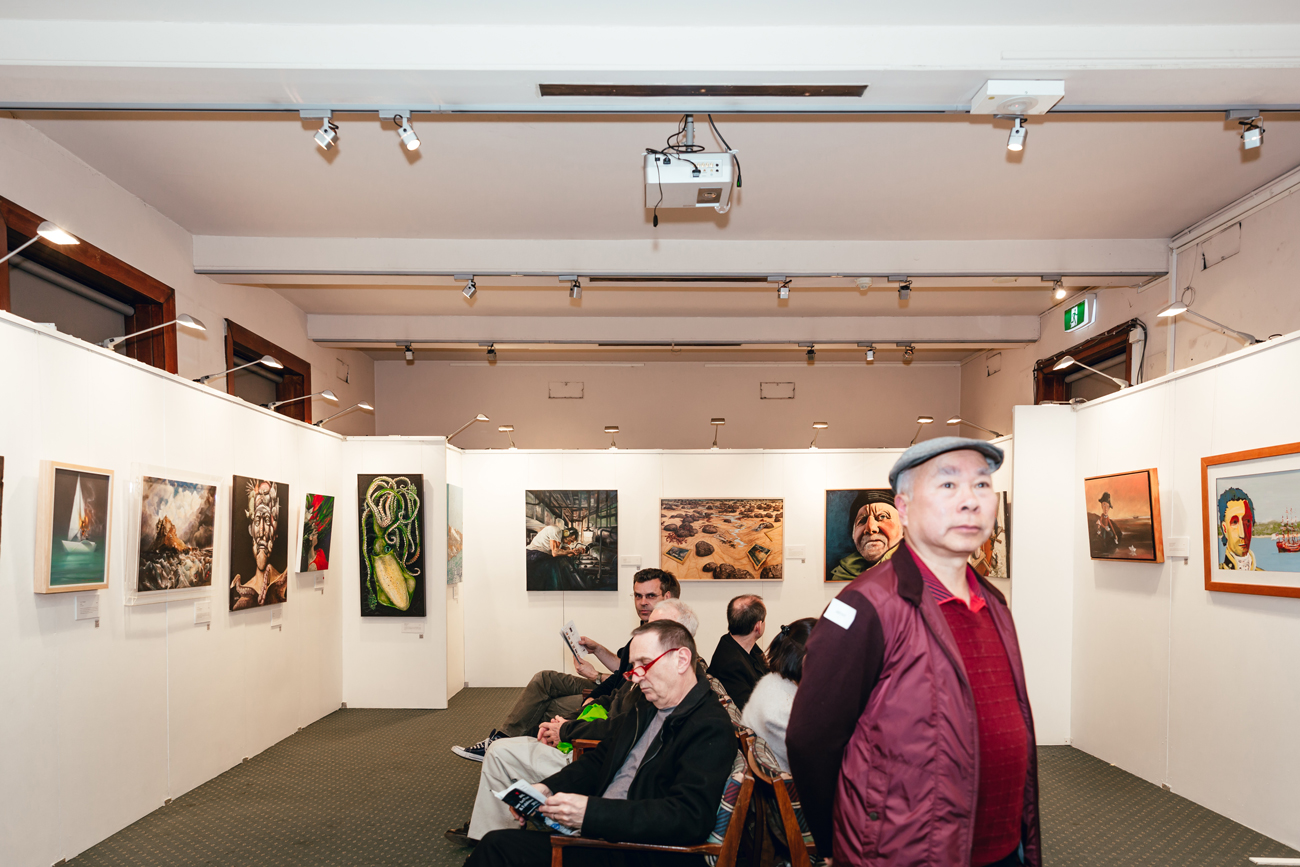
The Mission To Seafarers Victoria Maritime Art Prize exhibition showcased a collection of maritime-related work and was enjoyed by both art collectors and nautical enthusiasts!
Tip #4: Promote and market the exhibition
Spreading the word about your upcoming event and reaching as many people as possible is central to a good turnout for your exhibition. For starters, make the most of social media platforms to circulate the important details – this is a budget-friendly and effective way of sharing events and inviting guests. Provide an insight on what to expect from the show, but allow room for curiosity about the exhibition. If you have one or two major pieces in your collection, this a perfect opportunity for a bit of promo.
Creating event pages online is another great strategy to get your event organised and out there. Using an online ticketing platform to host your art exhibition facilitates RSVPs and even ticketing. What’s more, they accurately track the attendance so help you manage your expectations of the event turnout and plan for the right amount of people.
Tip #5: Put a face to the name
Your presence and personality at your own event will allow the audience to get the most out of viewing your artwork. To make your exhibition a success story, put forward your best self and be prepared to answer questions about your work, giving insight about your creative process to the curious and ultimately make for a much more pleasurable experience for both parties. Being enthusiastic and strengthening connections with your audience is a sure way to build up your reputation as an artist, and will leave exhibition-goers with a great perception of you and your work. They’ll be much more likely to support your career by buying on the night and into the future.
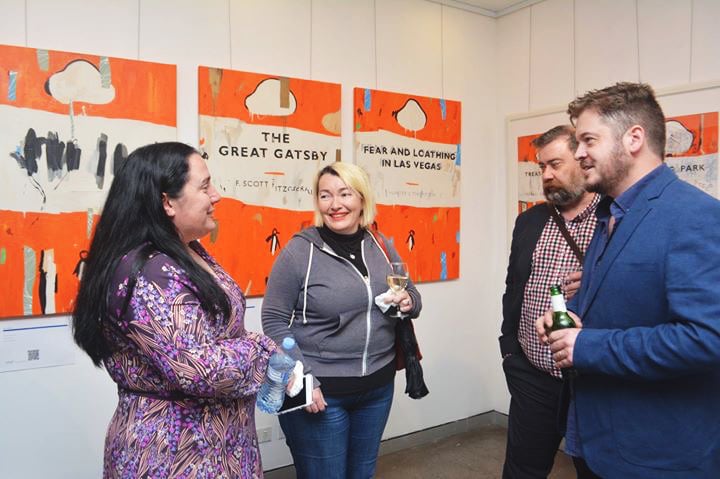
It was an exciting opportunity to chat with Ben Tankard and fellow Bluethumb artists in front of his artworks at our Sydney Pop-Up Exhibition.
Tip #6: Test the waters online first
Art exhibitions can be costly, time-consuming events that without the right research can leave you out-of-pocket and disappointed. If your objective is to sell your artwork or raise your profile, using Bluethumb is a great way to put out the feelers with your work on the market before committing to a physical space. Connecting with an online platform can provide support and take away the burden of a successful, profitable event, allowing any exhibitions you choose to have to be enjoyable and a exciting opportunity to build your character within a community.
If you haven’t already, join Bluethumb and start selling your art online today.

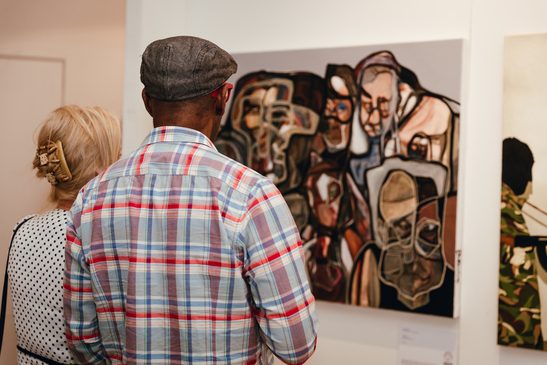
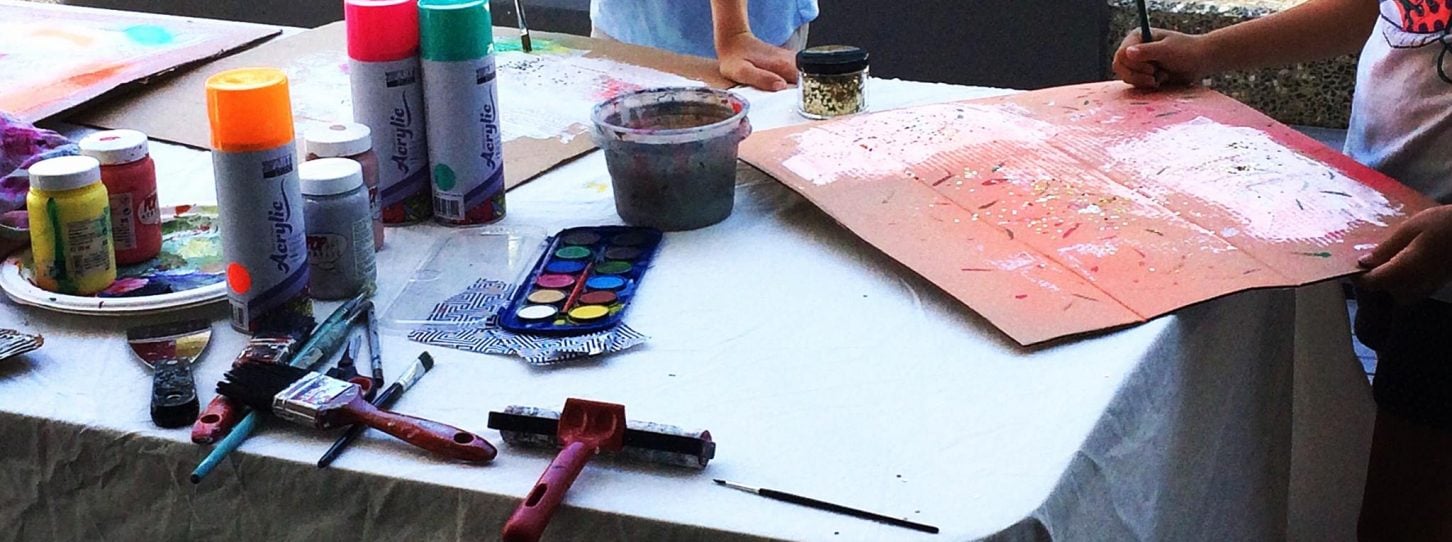



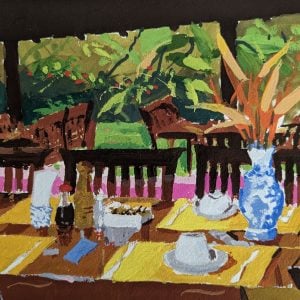






Some great tips, also suitable for other industries too! As you touched on, marketing the event is key, let people know you’re there and what your display will have to offer.